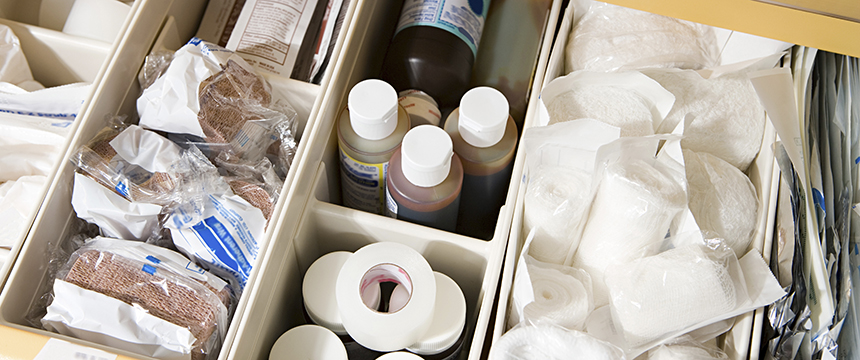Three Ways Antitrust Enforcement Has Changed Under Coronavirus, and One Way it Has Not

Amid the national coronavirus emergency, the antitrust enforcement agencies remain open for business. However, like the rest of these country, these agencies—the Department of Justice (DOJ) and Federal Trade Commission (FTC)—have been forced to adapt to the changed circumstances. This article describes three ways that antitrust enforcement by the DOJ and FTC has changed under the coronavirus—and one way that it remains the same.
1. Increased Scrutiny of Collusion and Price-Gouging in Medical Supplies
As the scope of the pandemic became clear, the DOJ released a statement warning the business community against violating the antitrust laws in connection with public health products like face masks, respirators, or diagnostics. In particular, the DOJ has warned that “[i]ndividuals or companies that fix prices or rig bids for personal health protection equipment such as sterile gloves and face masks could face criminal prosecution.” Similarly, “[c]ompetitors who agree to allocate among themselves consumers of public health products could also be prosecuted.” Companies should assume that the agencies will take very seriously any reports of improper collusion during this time of need, and that the agencies will not hesitate to bring enforcement actions where warranted.
More broadly, the DOJ has made clear that it intends to prosecute companies and individuals who attempt to illegally profit from the pandemic. Thus, in addition to using its antitrust powers, the DOJ has also made clear that it will prosecute coronavirus-related frauds, and it has already opened investigations into activities that may be “disrupting the supply chain and suggestive of hoarding.”
Finally, although the federal antitrust laws do not prohibit “price-gouging”—the unilateral charging of exorbitant prices for key supplies in times of increased demand—it is important to note that some states do have such laws. For example, Texas prohibits price-gouging in situations where, as now, the Governor has declared a disaster. Therefore, companies should be especially careful before raising prices on necessities during this pandemic.
2. Expedited Reviews of Healthcare Joint Ventures
Somewhat on the flip-side, the agencies also recognize that during the pandemic crisis, some companies are looking to work cooperatively with others in order to meet heightened demand for products—in particular products that serve medical and public safety needs. In response, on March 24th, the FTC and DOJ issued a “Joint Antitrust Statement” clarifying that “there are many ways that firms, including competitors, can engage in procompetitive collaboration that does not violate the antitrust laws.” The Joint Statement adds that the agencies will work to review and issue expeditious guidance to any coronavirus-related proposed cooperative arrangements. While such reviews usually require “several months” after the agencies receive from the proposed participants all information “necessary” to evaluate the arrangement, the agencies will aim to respond to all coronavirus-related requests “and to resolve those addressing public health and safety within seven (7) calendar days of receiving all necessary information.” The agencies also stated that they will also try to assist and move quickly with joint venture proposals submitted pursuant to the National Cooperative Research and Production Act, which provides for flexible treatment under the antitrust laws for some standards-setting organizations and joint ventures.
Acknowledging the extraordinary circumstances that presently exist in the country, the Joint Statement also specifically recognizes that exigent circumstances may require healthcare facilities to work together to provide safety equipment and related products or healthcare to communities that lack immediate access or that companies may need to temporarily work together to meet production and distribution needs of coronavirus-related products. In these circumstances, the agencies state that such exigent circumstances—limited in duration and necessary to address patient and community needs—will be taken into account in evaluating the conduct as it develops.
In short, while the agencies seek to ensure that the antitrust laws continue to be enforced, they are seeking to inform the business community that there are ways that the highly unusual and emergency needs that are arising can be met and overcome without undue antitrust enforcement concerns.
3. Merger Clearance and Enforcement Are Operational, But Slower than Usual
Under the Hart-Scott-Rodino Antitrust Improvements Act (HSR), certain mergers and acquisitions must be reported to the DOJ and FTC at least thirty days before the transactions can close, to give these agencies time to review the transaction for potential antitrust concerns. Until last week, HSR notifications needed to be submitted in hard copy or on a DVD to DOJ and FTC offices in Washington, D.C. However, because the coronavirus is forcing much of the agencies’ staff to work from home, the agencies have stopped accepting physical notifications; instead, the agencies for the first time have instituted an electronic filing system for HSR notifications. They are also for the first time allowing the use of e-signatures on HSR forms and affidavits.
Unfortunately, in view of the disruption caused by the pandemic, the DOJ and FTC have suspended grants of “early termination,” which is a widely used procedure in which the agencies can allow non-problematic transactions to close without observing the full thirty-day waiting period. Therefore, until the DOJ and FTC resume grants of early termination, parties will need to wait at least the full thirty days after their filings are made before their transactions can close.
Similarly, for transactions for which an investigation or enforcement action is already underway, the agencies are asking parties to agree to extensions of waiting periods and deadlines. In cases where parties do not agree to reasonable extensions, the agencies have signaled that they will take all actions necessary to serve their missions.
One Thing Remains the Same: The Antitrust Laws Remain In Full Force and Effect
Despite the profound disruptions the coronavirus is causing to our everyday lives, the antitrust laws continue to remain in full force and effect. And while the DOJ and FTC, as well as other antitrust enforcers around the world, are making reasonable accommodations to ensure that the antitrust laws do not deter legitimate business responses to the pandemic, the agencies also have made clear that they will continue to use the antitrust laws to ensure the protection of consumers and the preservation of competition.
* * *
For more information about recommended steps, please contact your Foley relationship partner. For additional web-based resources available to assist you in monitoring the spread of the coronavirus on a global basis, you may wish to visit the CDC and the World Health Organization.
Foley has created a multi-disciplinary and multi-jurisdictional team, which has prepared a wealth of topical client resources and is prepared to help our clients meet the legal and business challenges that the coronavirus outbreak is creating for stakeholders across a range of industries. Click here for Foley’s Coronavirus Resource Center to stay apprised of relevant developments, insights and resources to support your business during this challenging time. To receive this content directly in your inbox, click here and submit the form.



